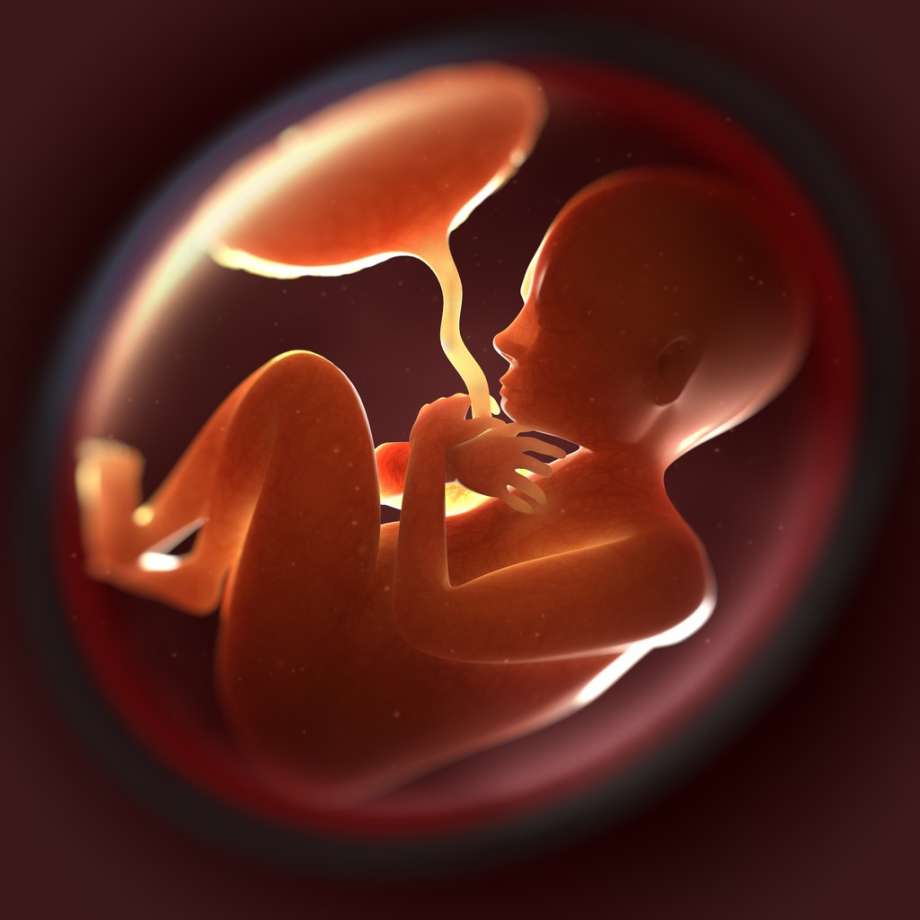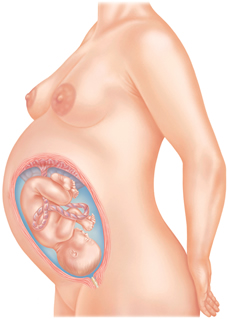Your Baby's Life Support System

In this article, you will find:
The role of the placenta
The placenta fulfills many essential roles that help sustain your pregnancy and enable your baby to grow and develop.
The exchange of substances
The placenta transports substances to and from your baby, acting as your baby's lungs, kidneys, and digestive system.
To obtain oxygen, the baby's blood cells grab oxygen molecules from your own hemoglobin (the oxygen-carrying subtance in blood). Fetal hemoglobin has a modified structure that makes it bind readily to oxygen. Your baby requires twice as much oxygen weight for weight as your own needs so the transfer of oxygen needs to be efficient. The placenta's enhanced blood supply, large surface area, and the characteristics of fetal hemoglobin all ensure the efficient transfer of oxygen from mother to baby.
As your hemoglobin gives up oxygen, it accepts carbon dioxide molecules. Your lungs breathe out air rich with the baby's carbon dioxide as well as your own and the cycle begins again.
To grow and develop your baby also needs amino acids, the building blocks for proteins, and minerals like calcium and iron and these all pass from your own circulation via the placenta to the baby.
Protecting your baby
The placenta protects your baby from infections and harmful substances. Since your baby hasn't encountered any external threats he doesn't yet make protective antibodies known as immunoglobulins that can identify threats, such as viruses or bacteria. Instead he is reliant on the transfer of immunoglobulins from your circulation via the placenta and into his circulation. This means that you are able to protect your baby in the uterus from illnesses such as chickenpox. After your baby is born, the immunoglobulins he acquired from you will eventually be lost, which means that later as a child he becomes susceptible to chickenpox.
Hormone production
The placenta produces hormones, such as estrogen and progesterone, that are vital to your baby's well-being and lead to many of the changes in your body during pregnancy.
Heat transfer
A baby's high metabolic rate generates heat. The placenta's big surface area and high blood flow disperses heat, controlling the baby's temperature.
Inside the placenta
The placenta contains a huge network of tiny projections called chorionic villi that branch out from a thin membrane, the chorion, and contain fetal blood vessels. The chorionic villi are bathed in maternal blood within the intervillous space. Each villus is only one or two cells thick, which allows the transfer of gases and nutrients between the mother and the baby, while ensuring that the two circulations never come into direct contact. Through the process of diffusion, oxygen and nutrients such as glucose, your baby's primary source of energy, from the mother pass into the fetal circulation, and waste products from the baby are picked up and carried away in the mother's bloodstream. The chorionic membrane also acts as a protective barrier, preventing many harmful substances and infections from reaching the baby.

The vast network of villi in the placenta facilitates the transfer of gases, nutrients, and waste products to and from your baby.
Umbilical cord